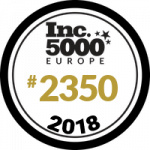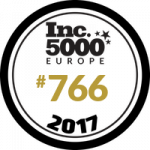Summary In the contemporary business environment, digital procurement is becoming increasingly popular and sought after by businesses around the world. The relationships …
Why effective procurement chain management requires a balance of human expertise and technology
Why does human insight remain irreplaceable in procurement?
The contemporary supply chain environment is becoming more intricate and laden with risks, which include geopolitical conflicts, shifts in regulations, environmental issues, and technological upheavals. Organisations are increasingly adopting advanced technology to address these challenges, utilising sophisticated analytics, artificial intelligence, and automation to optimise procurement operations, improve transparency, and facilitate informed decision-making.
Nevertheless, as technology assumes a more critical role in procurement, there is a prevalent misunderstanding that emotional intelligence (EQ) and other interpersonal skills are diminishing in significance, this notion is far from accurate. Although technology is capable of performing functions such as data analysis, inventory oversight, and supplier evaluations, the distinct value of human insight remains indispensable
Relationship management
A fundamental strength of human procurement professionals lies in their capacity to cultivate and sustain robust relationships with suppliers, stakeholders, and internal teams. While technology can offer data insights, it cannot substitute the trust and mutual understanding fostered through personal interactions. Strong relationships are vital for negotiating advantageous terms, resolving conflicts, and ensuring enduring collaboration, especially during challenging times.
Negotiation skills
Negotiation transcends mere data and logical reasoning. It necessitates an understanding of the motivations, emotions, and objectives of all parties involved. Procurement professionals who excel in negotiation can secure superior deals, guarantee equitable treatment, and generate value for both their firm and suppliers. These skills are rooted in emotional intelligence, which aids in interpreting the atmosphere, recognising non-verbal signals, and identifying interests.
Ethical decision-making
While technology can help identify potential ethical risks within the supply chain, such as engaging with suppliers that have substandard labour practices, the actual decision-making process relies on human judgement. Ethical procurement professionals must evaluate the advantages and disadvantages of various alternatives, consider the broader consequences of their decisions, and ensure alignment with the organisation’s values and corporate social responsibility objectives.
Adaptability to complex challenges
Whether faced with abrupt market shifts, natural disasters, or pandemics, human procurement professionals play a crucial role in navigating these complexities. Their ability to think innovatively, respond swiftly, and modify strategies in real time is something that technology cannot replicate. While technology can assist in identifying cost-saving opportunities, it is the human element that ensures procurement decisions contribute to sustainable value creation.
Notably, despite the growing dependence on technology, a recent survey revealed a significant level of confidence among leaders regarding their existing procurement talent. The findings indicated that 46% of participants believe they possess sufficient talent to fulfil immediate procurement performance needs. This confidence highlights the understanding that, although technology serves as a formidable asset, it is the human component—especially competencies such as relationship management, negotiation, ethical decision-making, and adaptability—that fundamentally drives success in procurement.
While technological advancements continue to refine and improve the procurement chain management process, the significance of emotional intelligence and human expertise remains critical. The most effective procurement strategies will be those that integrate the strengths of both realms: utilising technology for enhanced efficiency and accuracy while depending on human capabilities to ensure strategic decision-making, ethical considerations, and the ability to adapt to complex challenges.
How can technology contribute to better procurement outcomes?
As businesses progress in their digital transformation initiatives, the incorporation of technology into procurement operations is emerging as a transformative factor. Technology is revolutionising procurement by automating repetitive tasks, providing real-time data, enabling predictive analytics, and improving overall supply chain visibility. This transformation is allowing organisations to not only streamline their operations but also make more informed and strategic decisions.
Task automation
A primary advantage of technology in procurement is the automation of repetitive and labour-intensive tasks. Functions such as generating purchase orders, processing invoices, and communicating with suppliers can be automated, allowing procurement professionals to concentrate on more strategic endeavours, including relationship management and value enhancement. Automation minimises human error, accelerates processes, and guarantees uniformity throughout the procurement function.
Immediate data access
In the present dynamic business landscape, access to immediate data is essential. Advanced procurement technologies enable organisations to monitor all facets of their supply chain in real time, including management of inventory levels, supplier performance, market changes, and delivery timelines. This immediacy facilitates faster decision-making, mitigates the risk of disruptions, fosters stakeholder satisfaction and ensures the seamless operation of the supply chain.
Forecasting analytics
Technology empowers procurement teams to leverage predictive analytics. By examining data and recognising trends, predictive analytics can anticipate future developments, such as demand, supplier vulnerabilities, and market changes. 82% of organisations that have made significant strides in digitising their procurement processes believe they are deriving substantial value from their procurement data, with predictive analytics being a crucial element in this value generation.
Supply chain transparency
A notable benefit of technology in procurement is the increased visibility it offers throughout the entire supply chain. Through integrated platforms and digital solutions, organisations can achieve comprehensive transparency, monitoring every element and process from the sourcing of raw materials to final delivery. This visibility is vital for recognising and addressing risks, as well as optimising logistics.
A significant 57% of organisations indicate that their decision-making has improved due to insights derived from risk management technologies. Organisations that effectively utilise these technologies not only improve their operational efficiency but also position themselves to take advantage of new trends and generate sustainable value.
Synergy: Where human expertise meets technology
The collaboration between human expertise and technology is vital for achieving success. While technology equips us with robust tools for automating tasks, analysing information, and forecasting trends, it is the insight provided by humans that guarantees these tools are utilised effectively and ethically. A harmonious approach, where technology enhances human decision-making, is necessary to navigate the intricacies of contemporary supply chains.
Technology delivers the accuracy and efficiency required to handle extensive data, automate repetitive tasks, and provide real-time insights throughout the supply chain. Nevertheless, without the context and discernment that human expertise contributes, these technological advantages may not reach their full potential. For instance, while data-driven insights can reveal opportunities for cost reduction, it is the human perspective that comprehends the strategic ramifications of such decisions, including the importance of maintaining supplier relationships or adhering to corporate values.
Ethical considerations in procurement cannot be entirely automated. Although technology can identify risks, such as engaging with suppliers that have dubious practices, the choice to respond to these insights necessitates human judgement. Procurement professionals must evaluate the ethical consequences of their decisions, ensuring that their actions align not only with the company’s short-term objectives but also with its long-term reputation and commitment to social responsibility.
The most successful procurement strategies will integrate technological advancements with human expertise. While technology can furnish the means to improve efficiency and precision, it is the human element that fosters creativity, ethical decision-making, and strategic insight—ensuring that procurement remains both effective and principled in an increasingly complex environment.
Kronos Group’s expertise can elevate your procurement chain management processes to new heights
Elevate your procurement processes with the specialised expertise of Kronos Group’s procurement consulting services. Our team combines deep industry insights with innovative strategies to optimise your supply chain, driving efficiency, value creation, and ethical decision-making. Partner with Kronos Group’s procurement consulting to transform your procurement function and achieve lasting success.

Fighting the effects of inflation with sourcing and procurement consultants
Stay up-to-date on the latest insights on procurement, finance, and project management.
Summary Strategic procurement has become a necessity in today’s business world and organisations try to remain competitive. Having the right procurement strategies …
Summary The world of consulting has been undergoing a massive transformation and management consulting jobs are experiencing the impacts of these changes. …
FAQ
No, technology cannot replace the need for human expertise in procurement. While technology enhances efficiency by automating tasks, analysing data, and providing insights, it cannot manage relationships, make ethical decisions, and adapt to complex, unforeseen challenges. Human expertise remains essential for strategic thinking, negotiation, and ensuring that procurement processes align with broader business goals. The most successful procurement strategies blend the strengths of both technology and human insight.
The 7 stages of procurement typically include:
- Identifying needs: Determining what goods or services are required.
- Supplier research: Finding potential suppliers and evaluating their capabilities.
- Request for proposal (RFP): Soliciting detailed proposals from selected suppliers.
- Evaluation and selection: Reviewing proposals and selecting the best supplier.
- Negotiation: Discussing terms, pricing, and conditions with the chosen supplier.
- Purchase order (PO) issuance: Formalising the purchase with a PO.
- Contract management and delivery: Overseeing the delivery of goods/services and managing the contract.
Procurement planning in supply chain management involves strategically organising the procurement process to ensure that the right products or services are purchased at the right time, from the right sources, and at the right cost. It includes identifying needs, budgeting, selecting suppliers, and scheduling purchases to align with the overall goals of the supply chain, ensuring efficiency and minimising risks.














